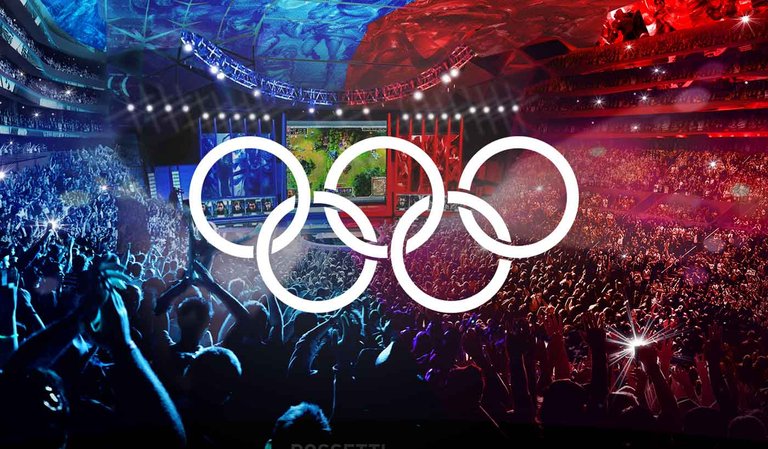
I continue to share with all the #hivers #gamers of this Community my impressions about the future trend of videogames.
I am not an expert in videogames, far from it, and mine is simply the vision of a videogame fan, like so many others who try to express their opinion about a trend that is marking a turning point in the history of videogames.
Today I'm going to talk about mobile games, without going into technical details, I'll just try to give my point of view on how this type of games is taking the best part between spectators and players.
Mobile games and similar devices are making a difference.
It is notorious that the proliferation of the latest generation of smart phones, with greater memory capacities, data storage, faster processing and better cameras has led to the development of different sectors, including video games.
At present, the main gaming device is the mobile phone, followed by computers, which until a few years ago had a monopoly on the market, followed by game consoles which, although they are not declining, only manage to maintain their loyalty in one sector of the market and tablets which are gradually making their irruption into a sector alien to them, since they were originally born only as free readers (remember the popular Kinder) and then gradually expanded their objectives.
The not entirely far-fetched hypothesis put forward by VentureBeat, the prestigious Californian website that publishes news, interviews, analyses and videos on different aspects of technology, notizie, analisi, interviste e video riguardanti la tecnologia, that as chipsets continue to advance in mobile devices we will see mobile devices in the near future that are on a par with a PlayStation 3 - as far as gaming is concerned - is increasingly close to reality.
Especially considering that mobile renewal is much faster than that of game consoles: a mobile user replaces his device every one and a half years while a game console owner replaces his device every five or six years. Thus the upgrade process is much faster for smartphones than for consoles, whose manufacturers need a longer period of time to prepare new products that will appeal to the market.
An example of this can be seen today with low-cost mobile phones, which, despite their low price and affordability, have very similar technical attributes to high-end phones. This suggests that we will soon see mobile devices that will most likely be as powerful - or at least very close to being so - as the PlayStation 4 or Xbox One consoles, the quality and performance of whose video games are not in dispute.
Statistics show that since their overbearing burst onto the gaming market in 2017, mobile gaming has continued to grow steadily. In the year 2021 they have generated more than 70% of the turnover in the total video games industry, staggering figures that show a latent reality, driven to some extent by the pandemic of the coronavirus that has left, among other data, an increase of more than 20% in the number of players (calculated at more than five million players), more than one hundred thousand million dollars in revenue and nearly 30% of downloads on iOS and Android applications.
If we want to make a simple five-year comparison, let's look at these figures: in 2017, eSports had a total revenue of more than $600 million. By 2022, that figure is expected to be close to 2 billion dollars, more than three times higher.
The genres leading the way so far are puzzles, role-playing games and arcade games, mainly due to the simplicity of their gameplay and the low amount of resources they require on the mobile device. But strategy games and the rest are pushing strongly from behind.
Spectators and players, from fans to masters of the "circus".
The trend in online games has always been for the players to be the main protagonists, either individually or in groups (multiplayer).
However, this trend, like so many others, is tending to reverse in the highly dynamic #gaming market.
Spectators who were previously isolated in small communities are expected to outnumber gamers this year, which is unprecedented. The desire to learn how to play, to play better, to learn new techniques from professional gamers, has led to this new, unprecedented circumstance in the gaming world.
Even some specialised publications have stated that, after having conducted numerous online surveys, they are in a position to say that gaming is slowly becoming a kind of sport as popular entertainment for many young people, even going so far as to compare it to other traditional sports by calling it a "spectator sport".
eSports has contributed a lot to this, to the point where it is estimated that this year the growth among video game players will be around 10% while spectators will almost double, i.e. 100%.
In a previous article I referred to the professionalisation of the sector under the title: Amateur or professional gamers? highlighting that this is one of the most accentuated future trends in gaming and that it will surely become more pronounced in 2022, transforming a real legion of gamers from simple amateurs to true professionals. And for this to happen, it is necessary to learn. Hence the enormous increase in the number of spectators.
This phenomenon will also lead to a change in the mentality of game designers and programmers: they will no longer have to focus 100% of their attention on the players, but especially on the spectators, trying to interpret their desires and concerns in a market that is moving at an incredible speed.
0 commenti:
Post a Comment